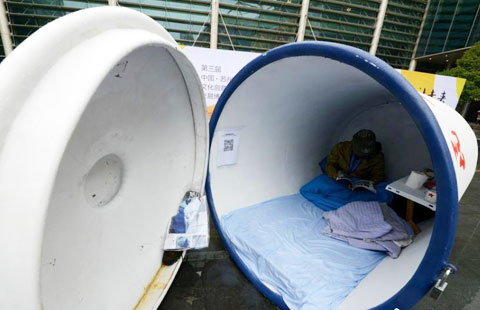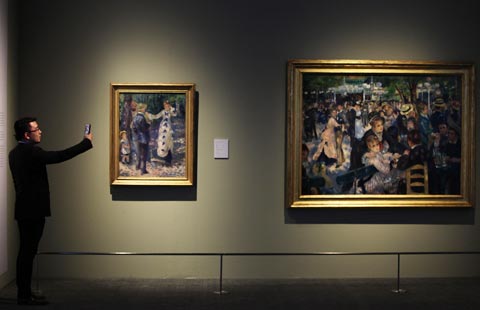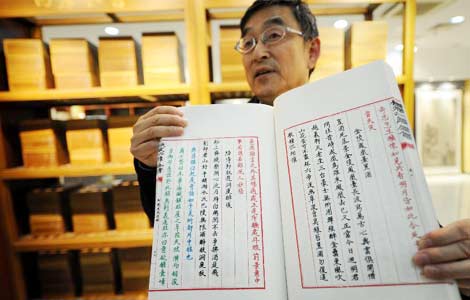Co-productions facing up to some awkward realities
By Liu Wei ( China Daily ) Updated: 2014-04-22 09:37:05Annaud prepared for the project for five years, two of which involved training wolves in China.
The production team is an international one, and Annaud and lead actors Feng Shaofeng and Shawn Dou (Dou Xiao) communicate in English.
Wang took the picture to the film market at the Berlin International Film Festival earlier this year and sold the exhibition rights to "more than half of the European countries", including Switzerland, which seldom buys Chinese films. The minimum guarantee for the film's rights, says Zhang Qiang, vice-president of China Film Group, sold for $8 million, a decent figure for a Chinese film's overseas sales.
The film's foremost market, however, will still be China. English dialogue was given some consideration but ultimately abandoned.
"One of the most important things you have to think about before you make a co-production, is your audience," Wang Weimin says. "Who are you making this film for? You are making a consumer product, so the customer needs to be clear."
Producer Wang Fan appreciates the film's realistic approach.
"One misunderstanding in co-productions for many years is that the film should appeal to both the Chinese and overseas market," she says, "but that is too idealistic."
Even within the overseas market, she adds, there is North America, Europe, film festivals and art theaters, each of which want different genres and styles. To generalize the "overseas market" is not a wise strategy.
In her definition, a real co-production is not subject to rigid rules on numbers or proportions.
"Professionals from different countries work together on a film, that is a co-production," she says.
"Understandably, government has some expectations for co-produced films, endowing them with diplomatic missions, but for filmmakers, our first priority should always be the making of a quality film."
|
|
|
|
|
|
|
|

























 Raymond Zhou:
Raymond Zhou: Pauline D Loh:
Pauline D Loh: Hot Pot
Hot Pot Eco China
Eco China China Dream
China Dream China Face
China Face






